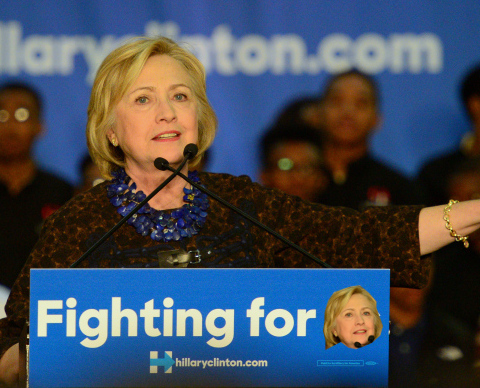

THE USPTO strives to grant more and more patents, i.e. the mistake that the EPO repeats under Battistelli.
"The patent world's mumbo-jumbo, in particular misleading euphemisms like 'protection', 'property', 'asset', 'assertion', and 'innovation' aren't exactly mesmerising and we hope that people everywhere will manage to filter the buzzwords and assess things for what they really are."Here is the referenced page and some blurb from IP Watch about it. We don't honestly think that Clinton would work for anyone other than herself and her campaign contributors, i.e. Wall Street, oligarchs (like Donald Trump) and large corporations, but giving her the benefit of the doubt, let's see what TechDirt made of it after careful analysis. TechDirt published two articles on the subject; one was titled "Hillary Clinton's Tech Policy Plan Includes Some Empty Broadband Promises And A Continued War On Encryption" and another "Hillary Clinton's Intellectual Property Platform: Too Vague & Confusing". This pretty much reaffirms what we believed all along. Lots of promises, no expected delivery. It's campaign season's rhetoric, just like Clinton's (her husband) and Obama's (who now endorses her, having failed to make any positive change in the patent system). Speaking of spouses, see "Quick Hit: Massachusetts Case Litigating Spouse’s Interest in Invention." It comes from Patently-O and it says: "I can’t find anything available on line that is not behind a paywall, so… Recall that I’ve written here about how there’s an interesting question as to whether in a community property state the spouse of an inventor has an interest in inventions (and other IP). Defendants have, so far unsuccessfully, taken quitclaims from the spouse in an effort to defeat infringement suits, as a result.
"There’s a Massachusetts appeal pending where, from what I can tell from what I’ve found on-line, the spouse of an inventor is claiming that because funds from a joint bank account were used on the invention, she has an interest in it. The case is Mazzu v. Mazzu, No. 2015-P-16011, and it is on appeal from the Suffolk Count Superior Court to the Appeals Court of Massachusetts. Who knows what we will learn."
Another Patently-O article, this one by Jason Rantanen, says that "Professor Radin’s discussion is worth a read for the eloquent way that she captures and synthesizes the raw strands floating around in current discussions about patent claims."
"This whole election cycle is already well down the drain as people are basically presented with the choice between an oligarch and one who works for oligarchs."The patent world's mumbo-jumbo, in particular misleading euphemisms like 'protection', 'property', 'asset', 'assertion', and 'innovation' aren't exactly mesmerising and we hope that people everywhere will manage to filter the buzzwords and assess things for what they really are. Another new Patently-O article is particularly interesting as there's a graph, derived from raw data, showing a decline in the number of newly-registered patent practitioners since Obama took public office. Here is the caveat: "The above graph shows only initial registrations. It does not show changes in which a patent agent becomes a patent attorney, as the practitioner does not receive a new registration number. The registrations for 2015 indicate that 42.4% of the initial registrations were for patent attorneys and 57.6% were for patent agents (some of whom later became or will become patent attorneys)."
Whatever happens next in the US, we believe that neither Clinton nor Trump will make things any better. This whole election cycle is already well down the drain as people are basically presented with the choice between an oligarch and one who works for oligarchs. It's somewhat of a lost cause. ⬆